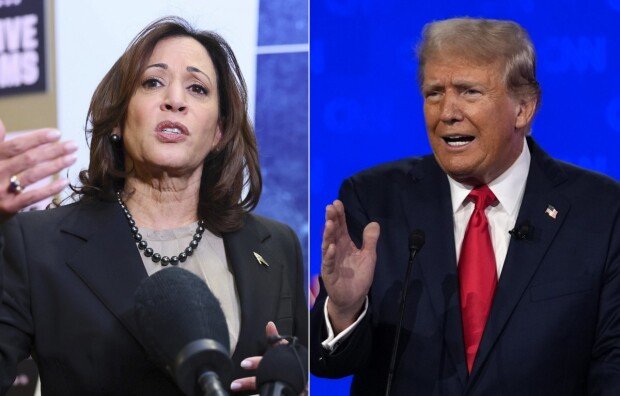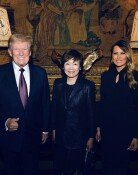Whoever wins, Trump or Harris, ‘Trade War Season 2’ is likely
Whoever wins, Trump or Harris, ‘Trade War Season 2’ is likely
Posted September. 09, 2024 07:36,
Updated September. 09, 2024 07:36

"You leave the dollar and you're not doing business with the United States," said former U.S. President Donald Trump, a Republican presidential candidate, adding that he would impose a "100% tariff" on countries using the Chinese yuan or other currencies instead of the dollar. On Saturday (local time), in the key battleground state of Wisconsin, he expanded the U.S.-China trade war into a fight for "reserve currency" dominance, expressing his intent to retaliate with punitive tariffs against countries siding with China. As the U.S. presidential race heats up, each candidate's plans for a "Season 2" of the U.S.-China trade war are intensifying.
China, which has actively responded to the trade war with the U.S., may also bring out retaliatory measures, making it difficult for Korea, whose economy is heavily dependent on exports, to avoid widespread pressure amid the U.S.-China conflict. Kamala Harris, the Democratic vice-presidential candidate, has been cautious in her comments about regulating China but has hinted at a tough stance on restricting advanced industries. "We will ensure that the U.S., not China, wins the 21st-century competition," Harris said in her speech at the Democratic National Convention last month. “The U.S. will lead the world in artificial intelligence (AI) and space exploration, while maintaining its global leadership.”
There are expectations that Tuesday's first presidential TV debate between the two candidates will clarify their stances on China policy. As both candidates take a tough stance on China, concerns are growing that South Korean companies, particularly in the semiconductor industry, could become collateral damage, caught in the middle of the intense U.S.-China rivalry.
박현익 기자 beepark@donga.com
Headline News
- Joint investigation headquarters asks Yoon to appear at the investigation office
- KDIC colonel: Cable ties and hoods to control NEC staff were prepared
- Results of real estate development diverged by accessibility to Gangnam
- New budget proposal reflecting Trump’s demand rejected
- Son Heung-min scores winning corner kick







